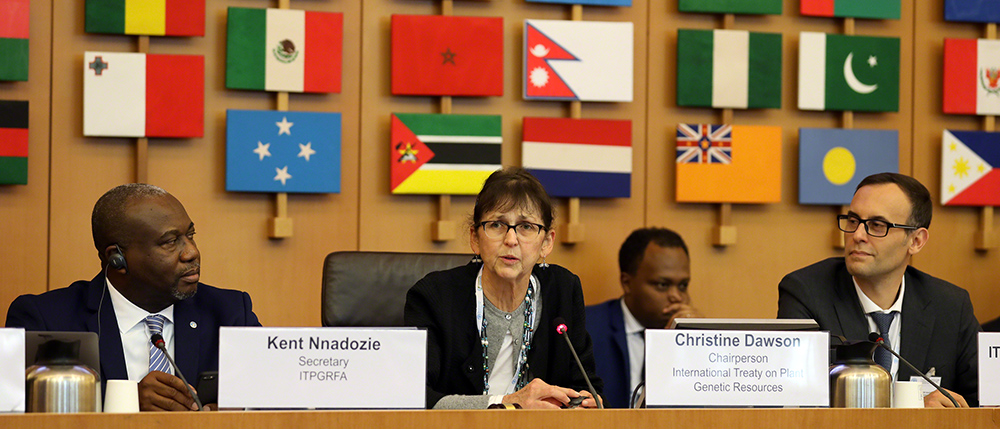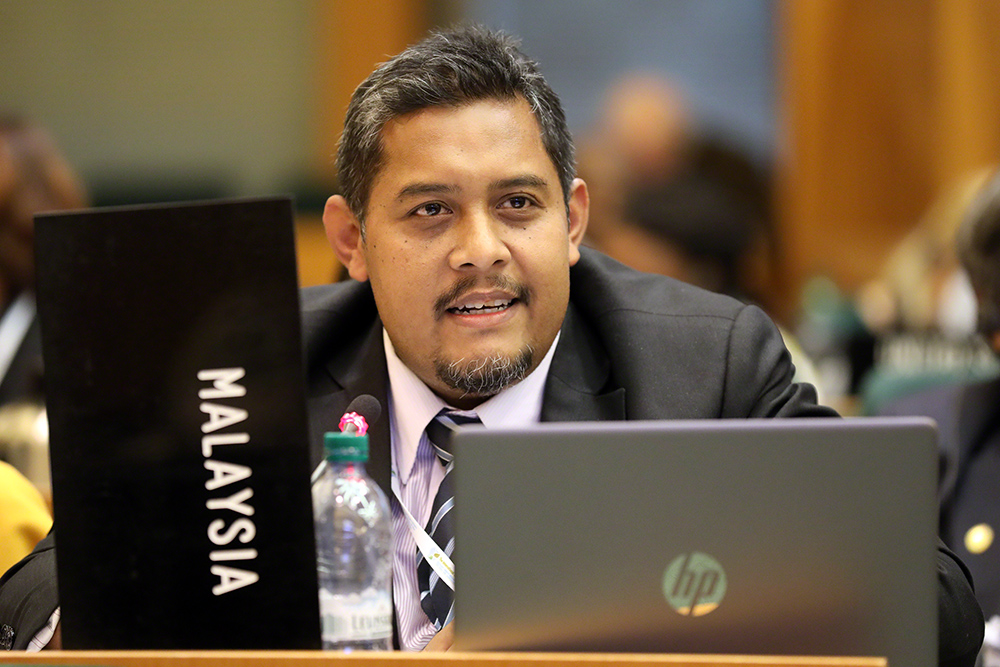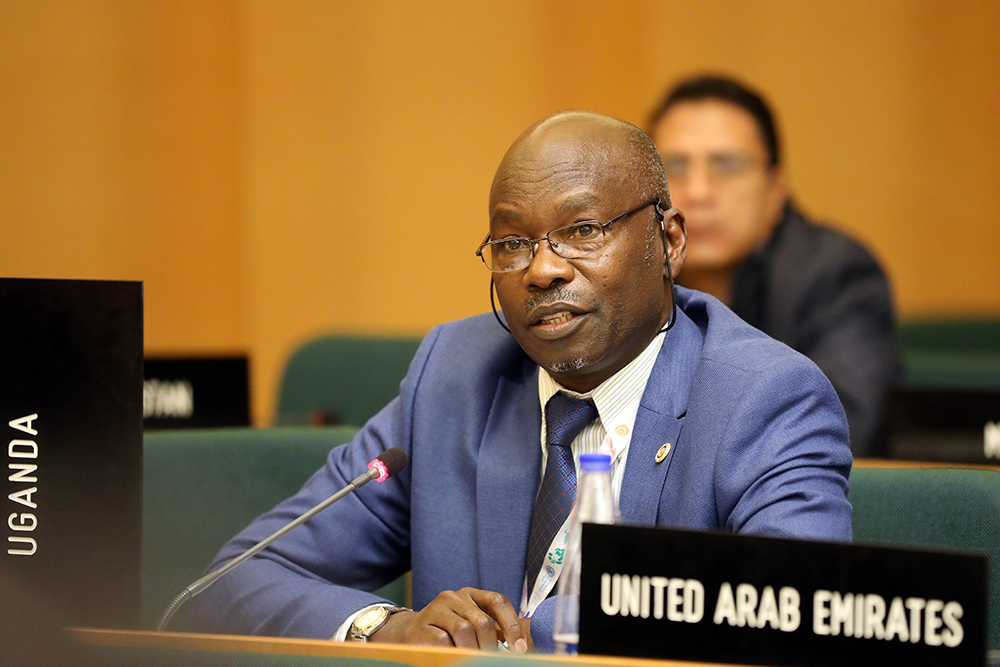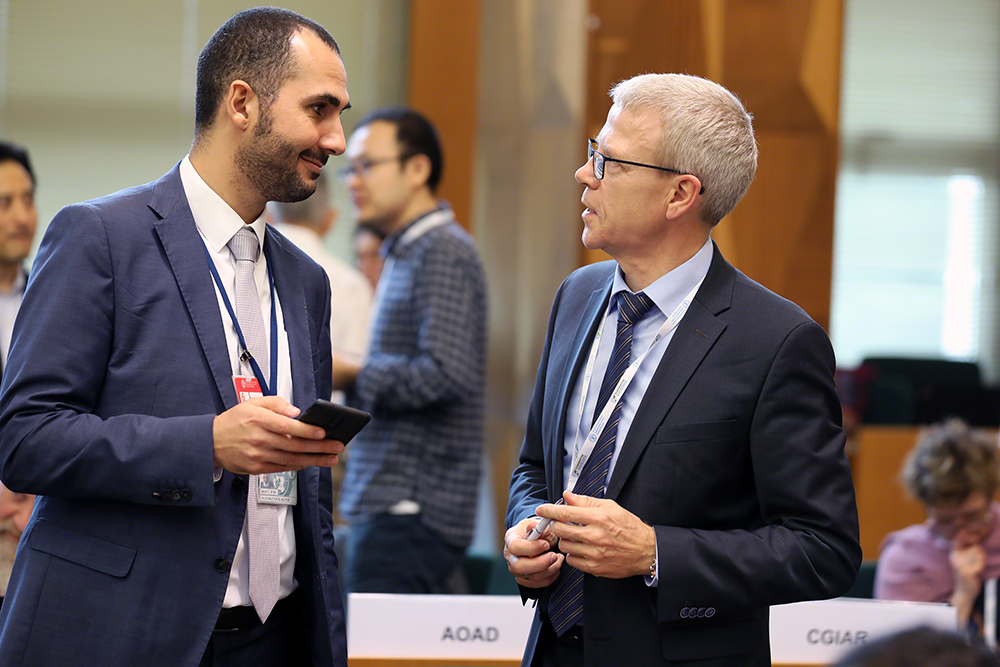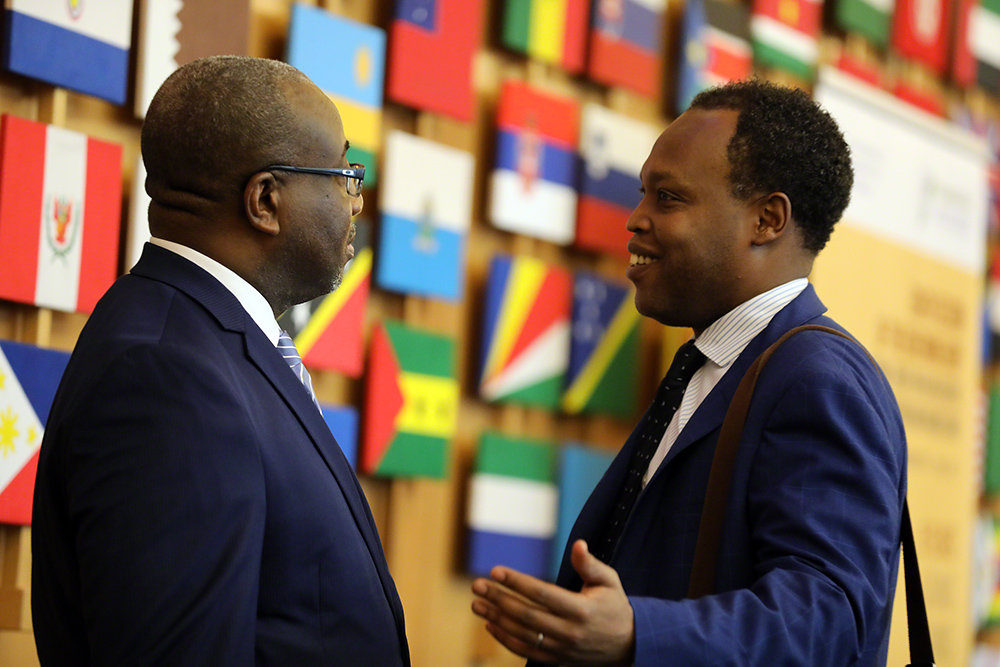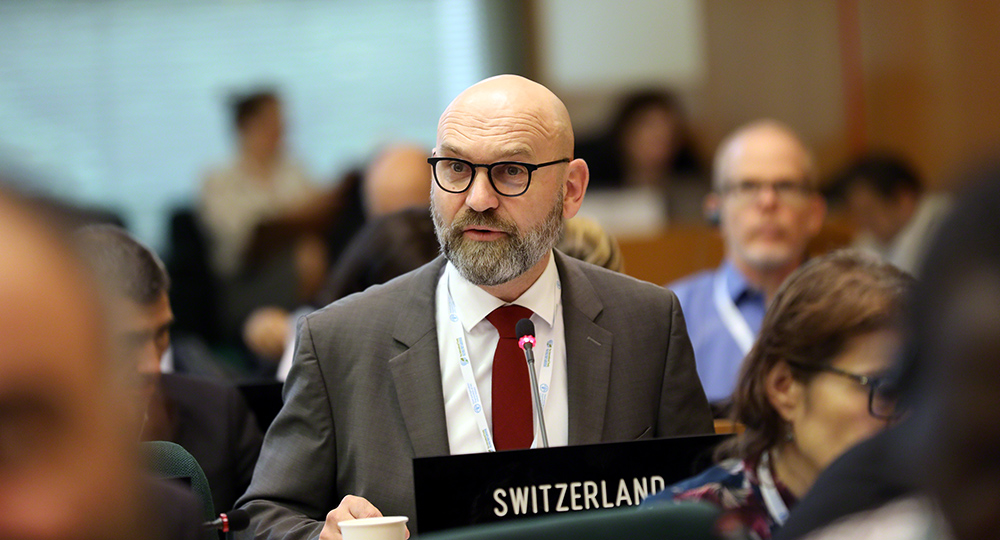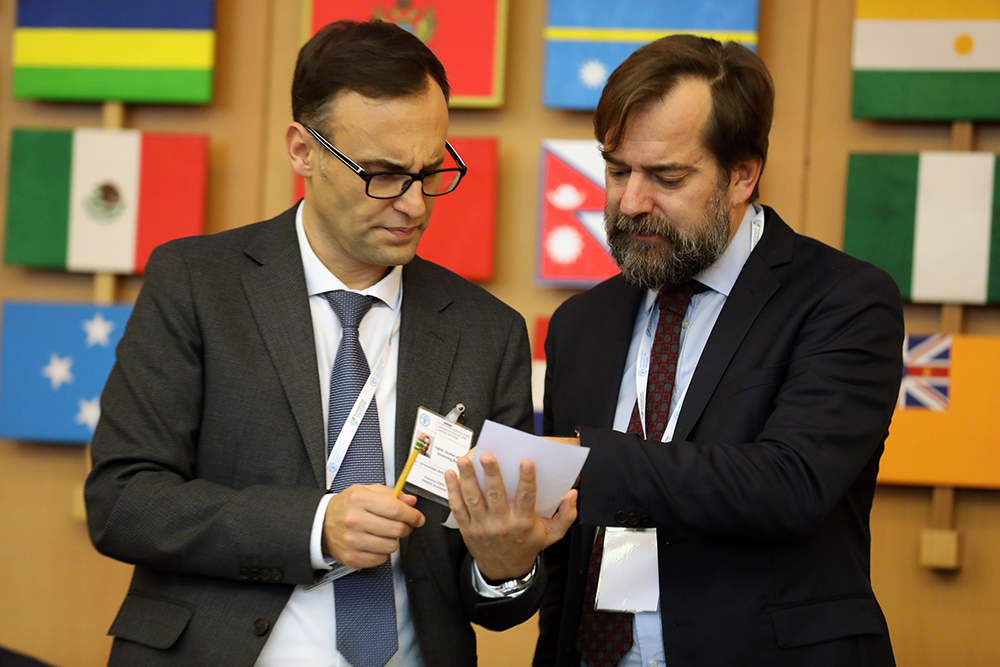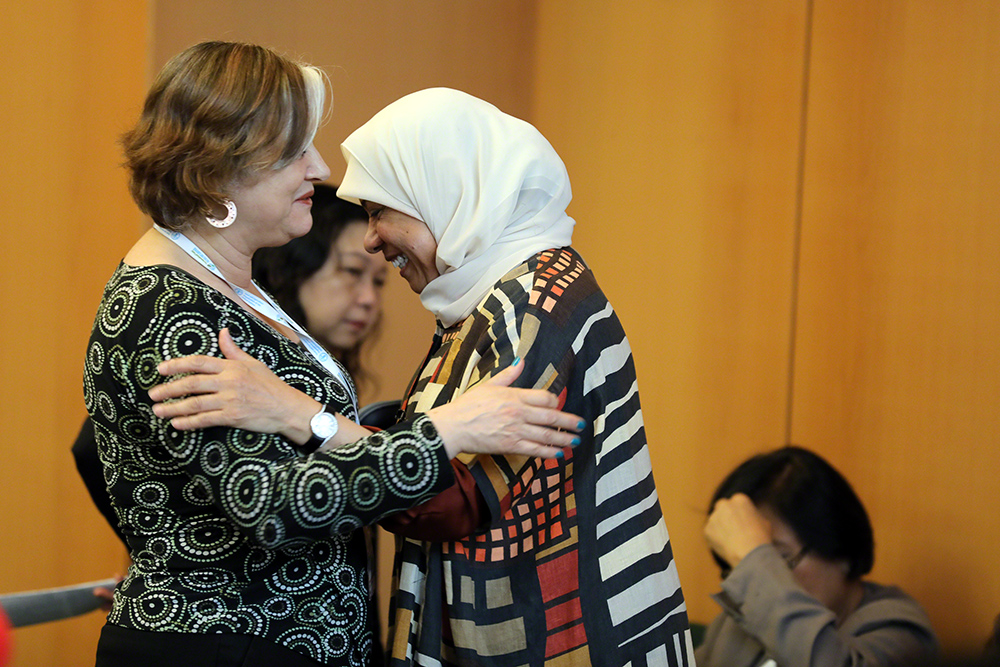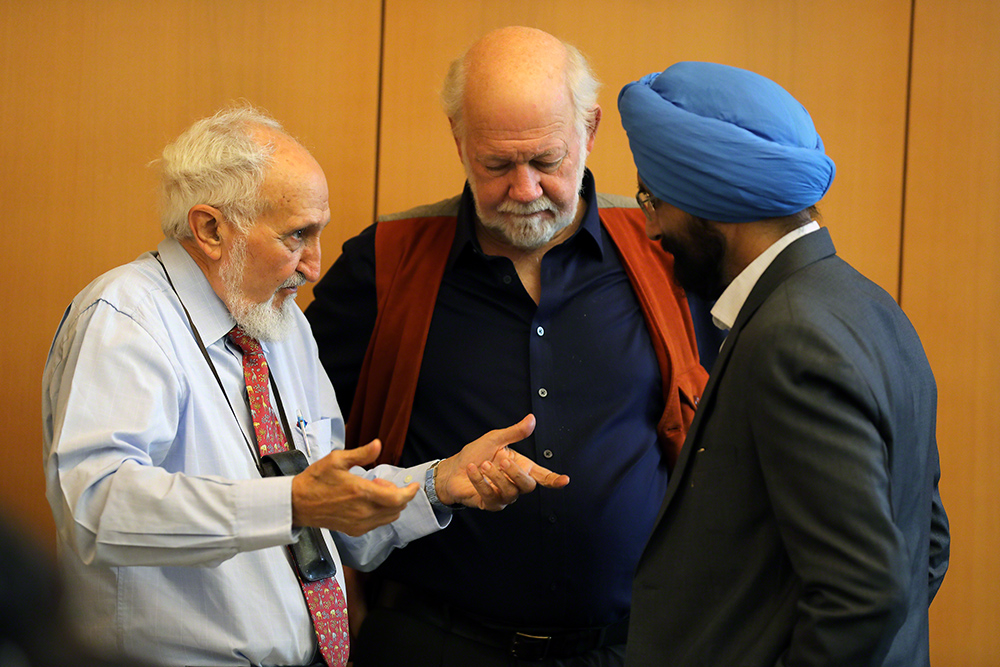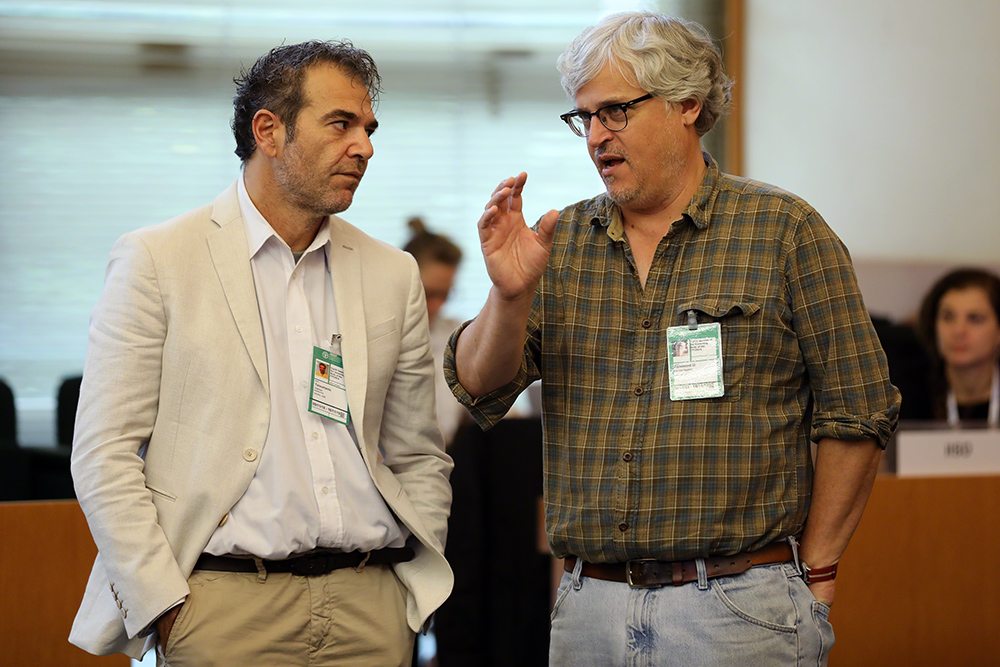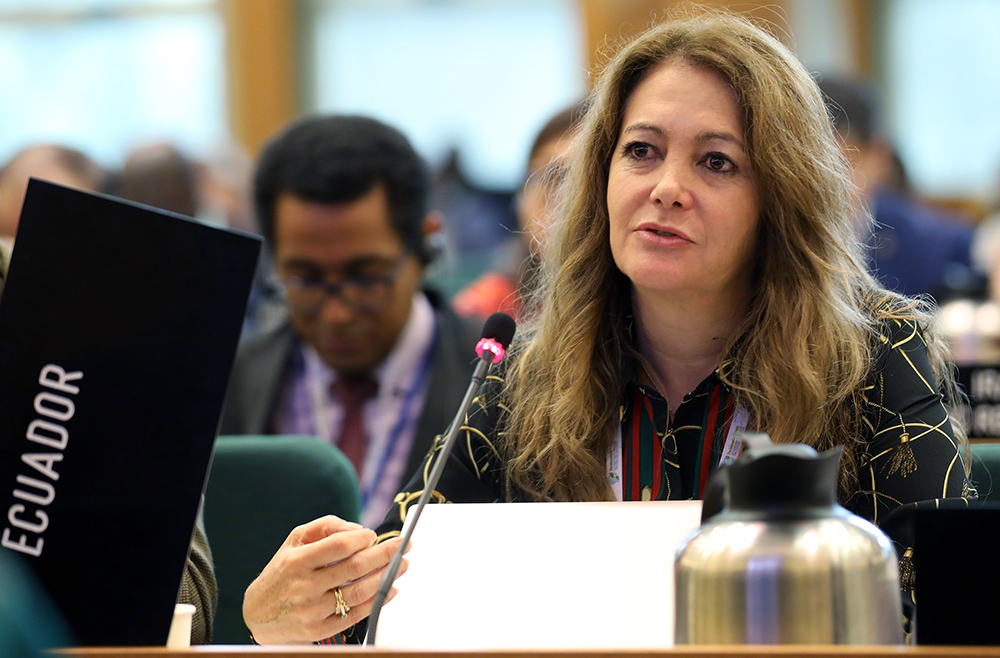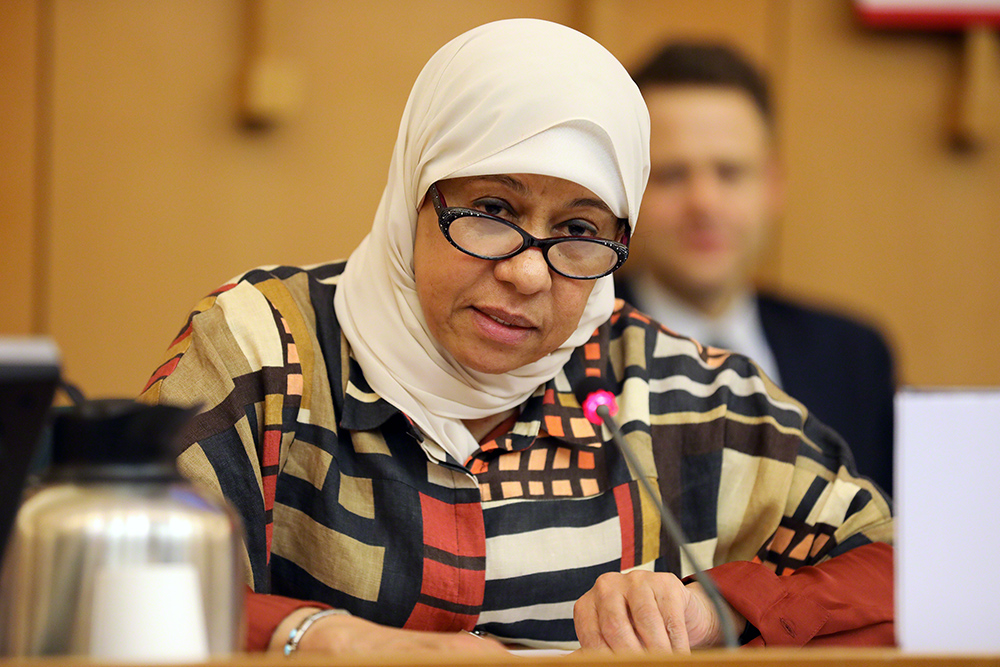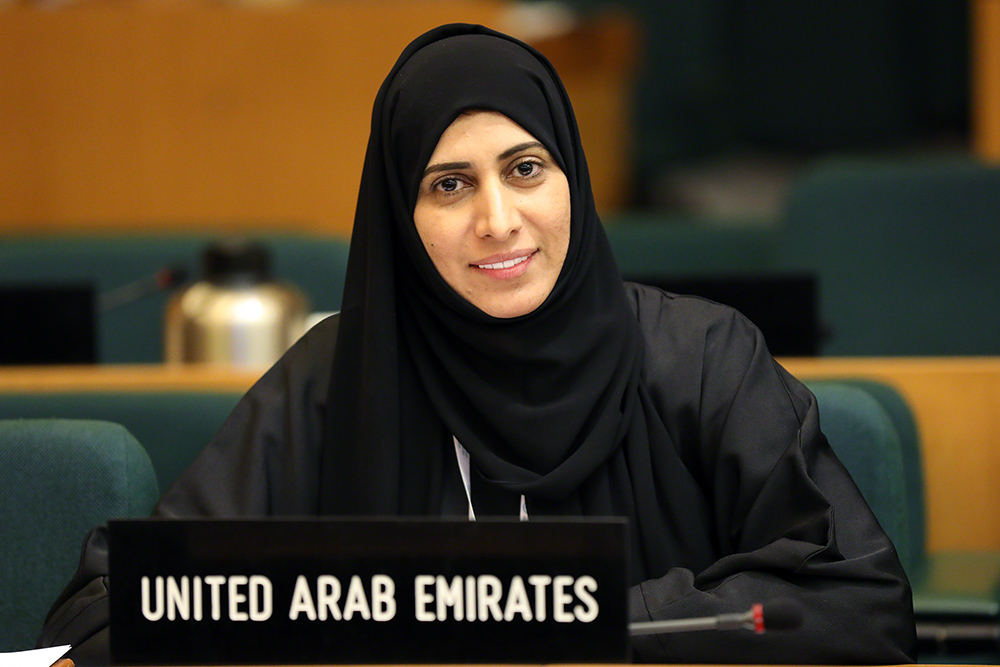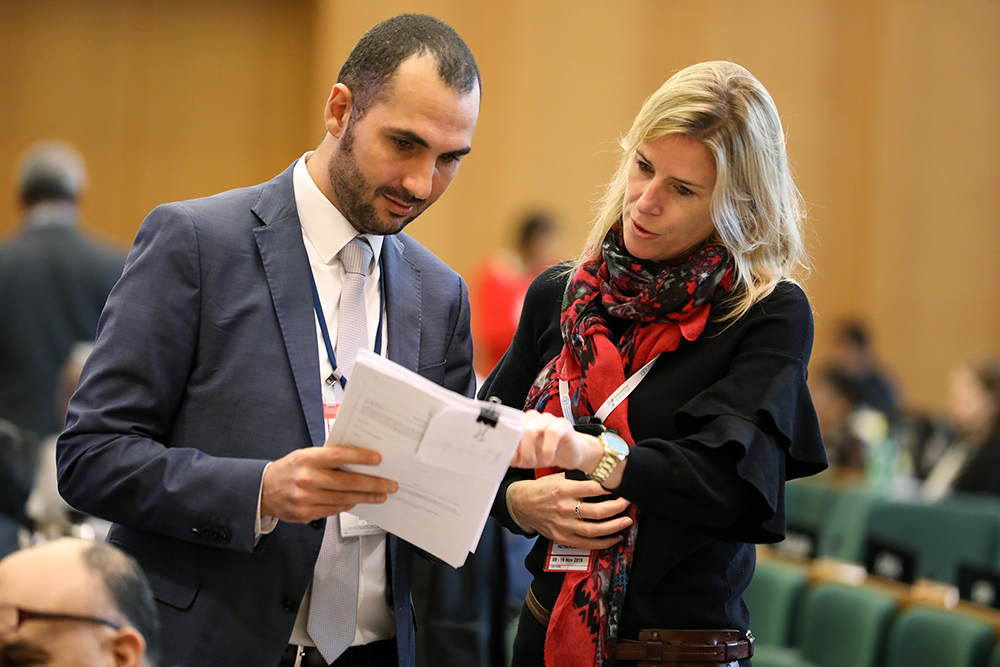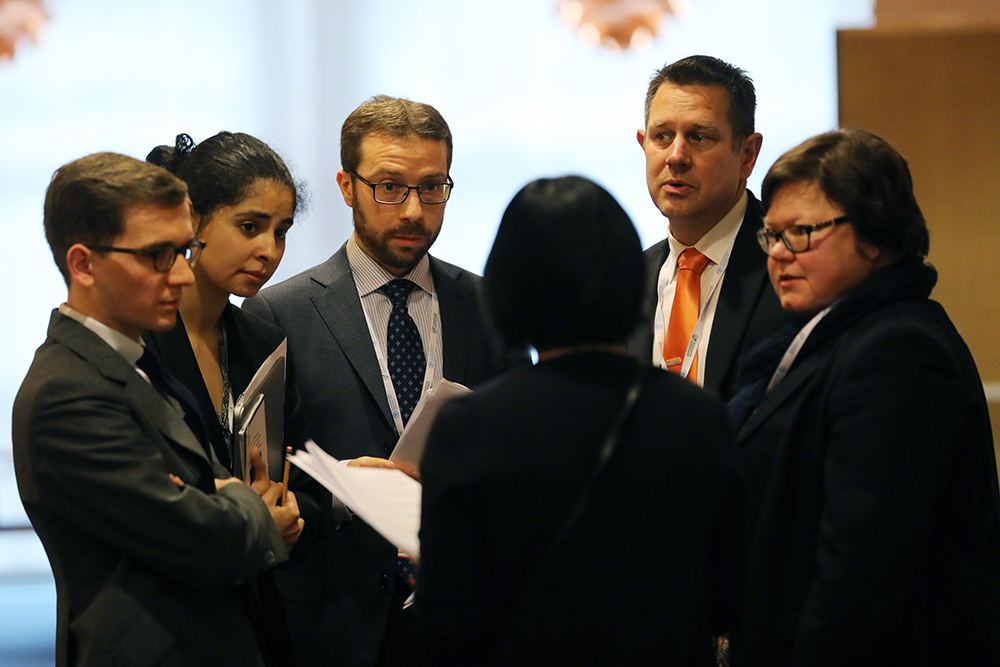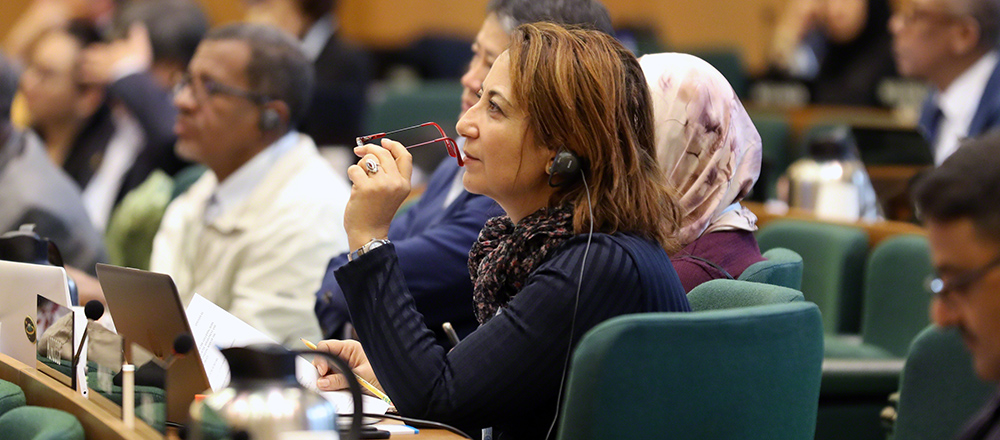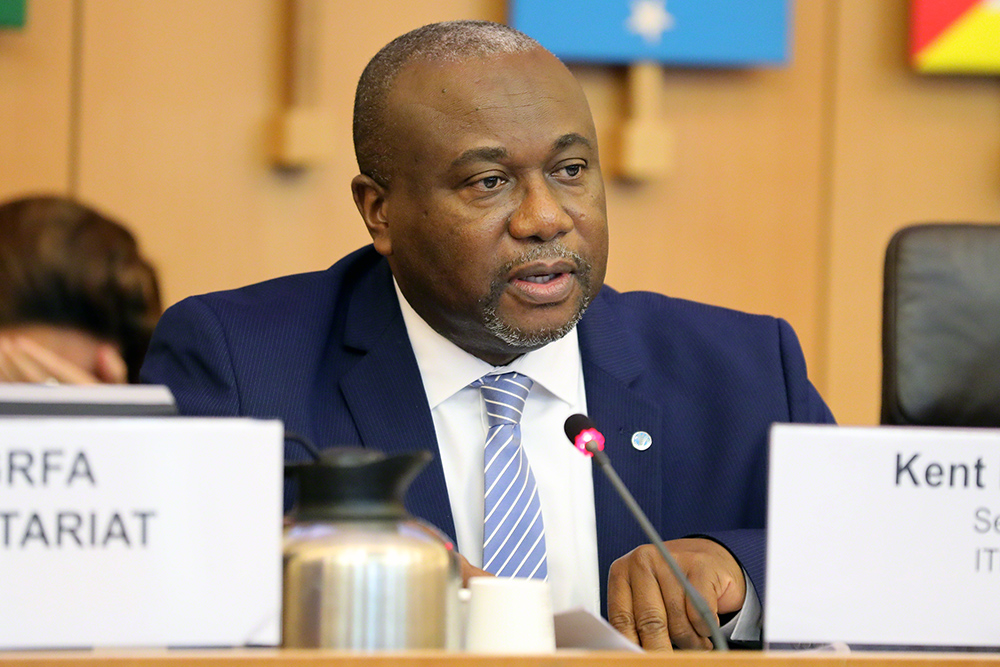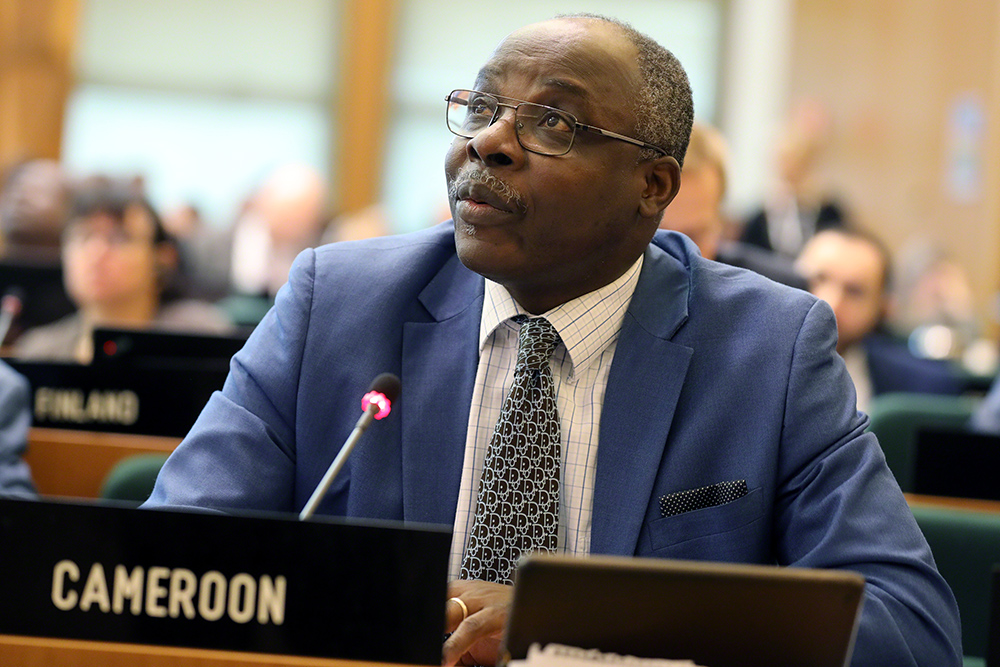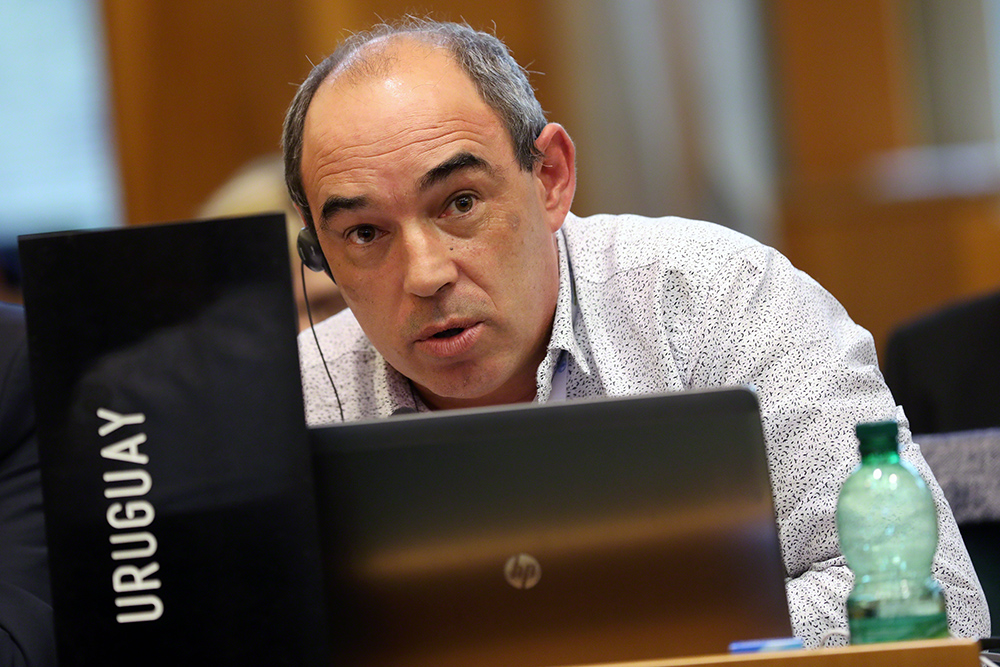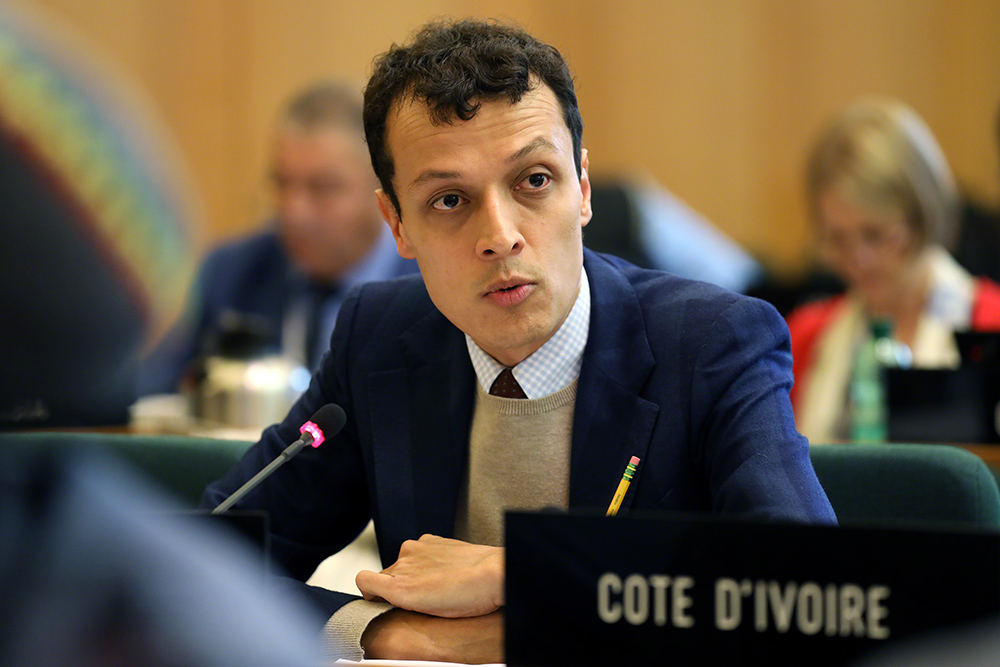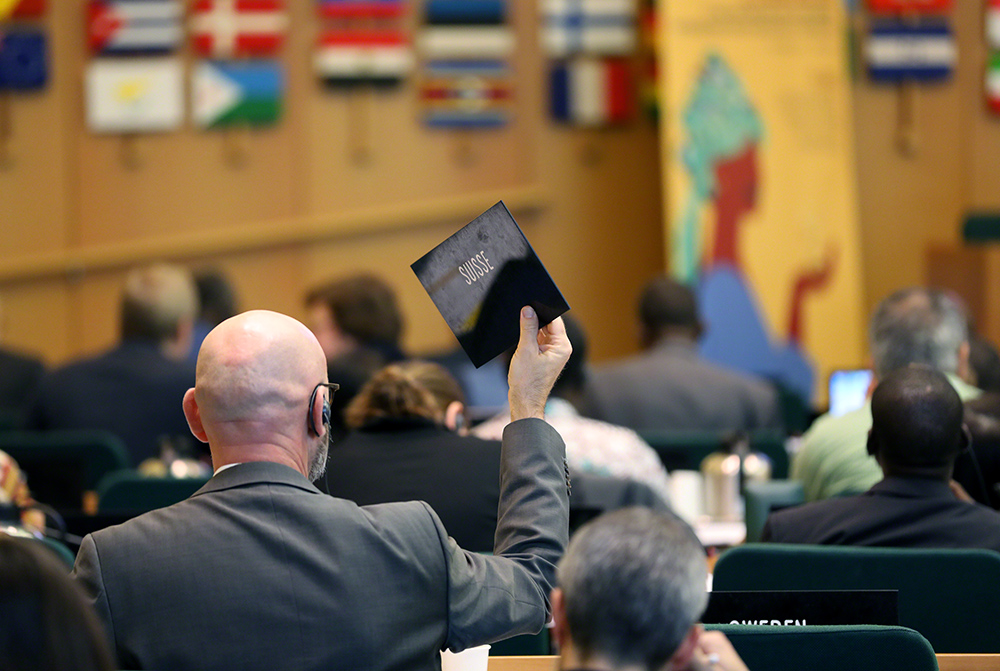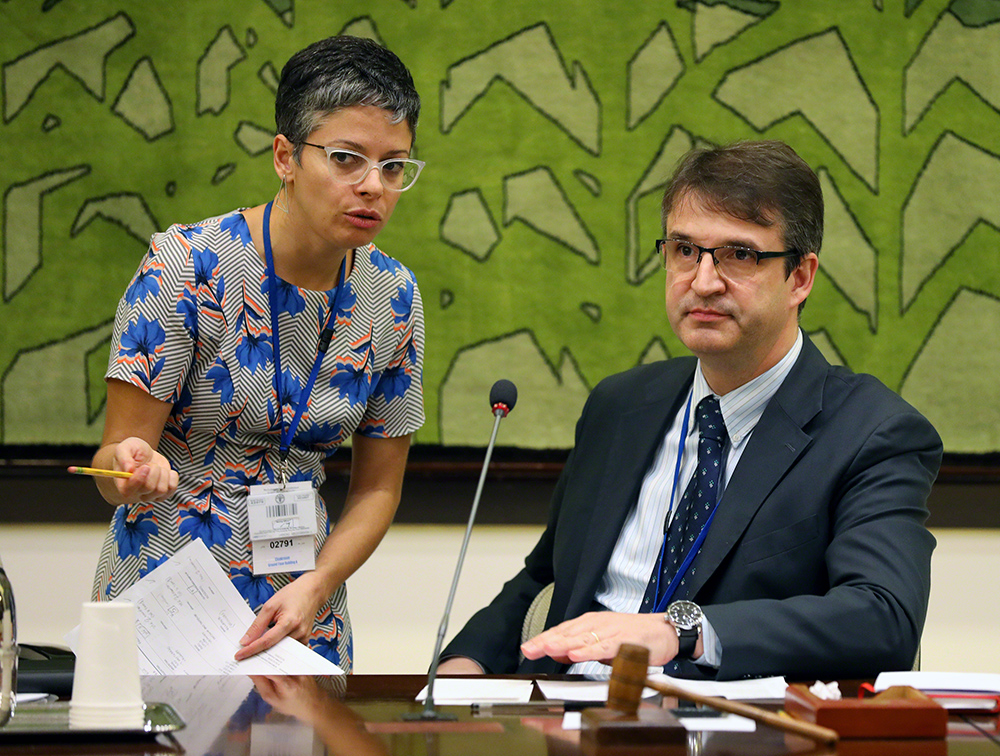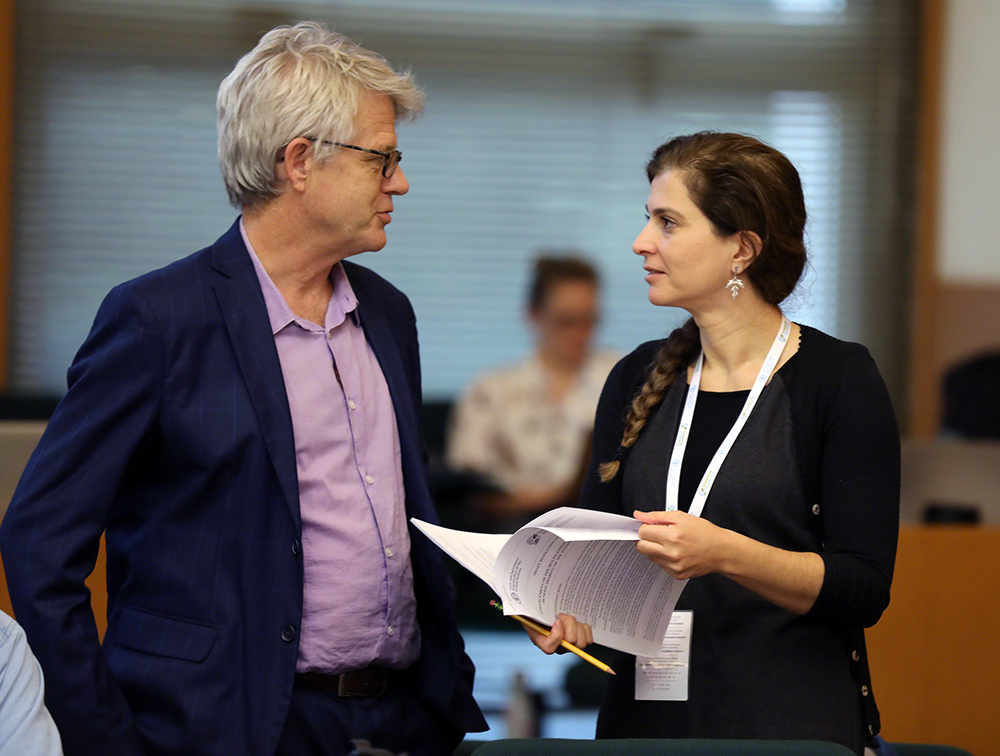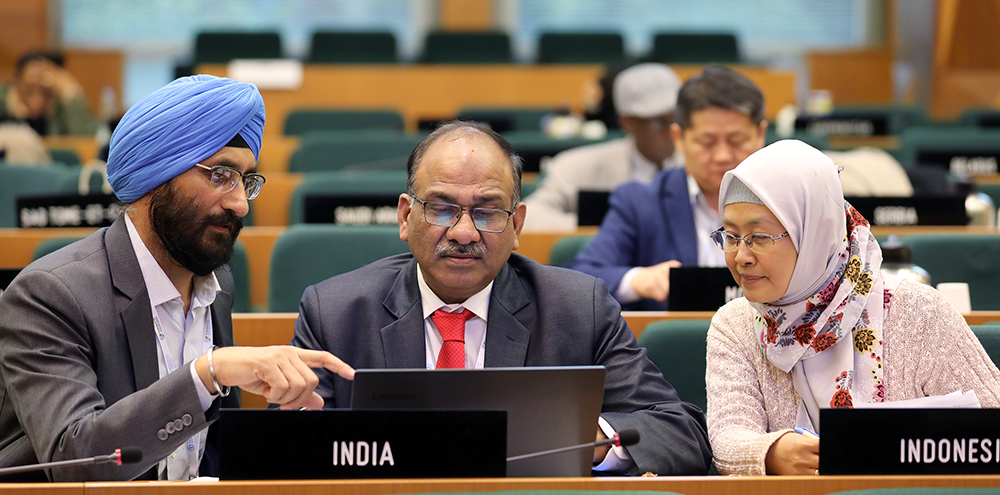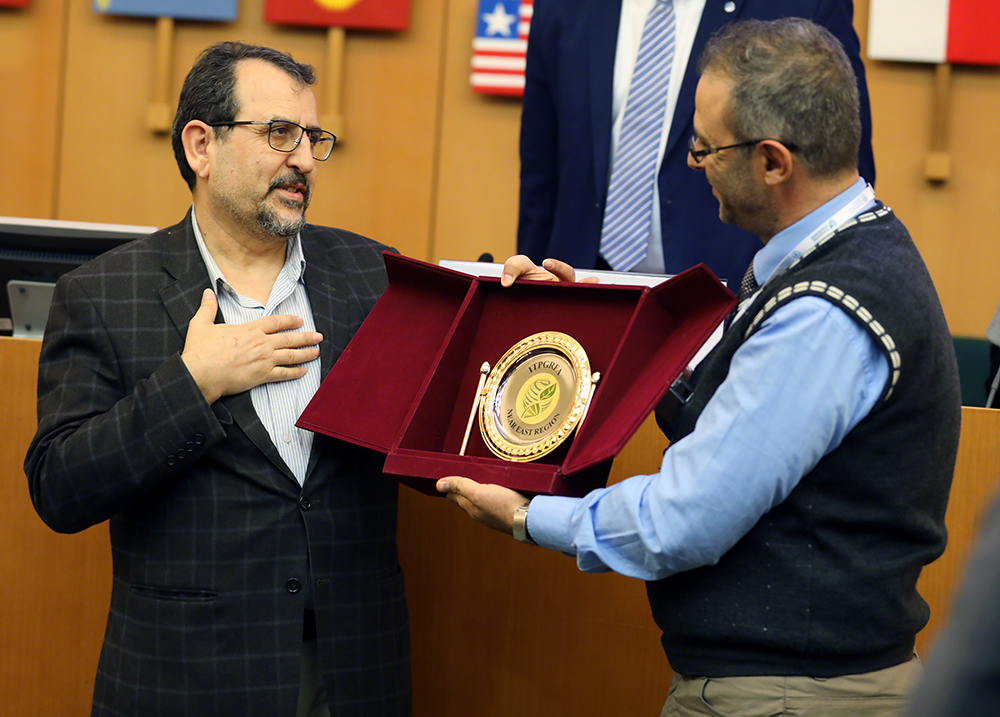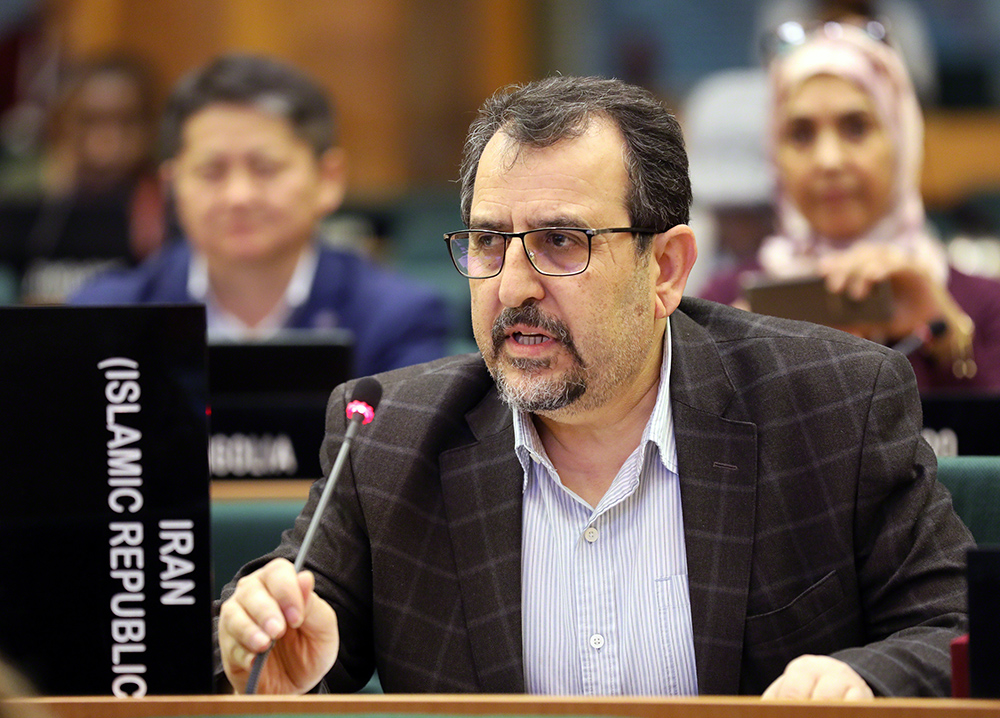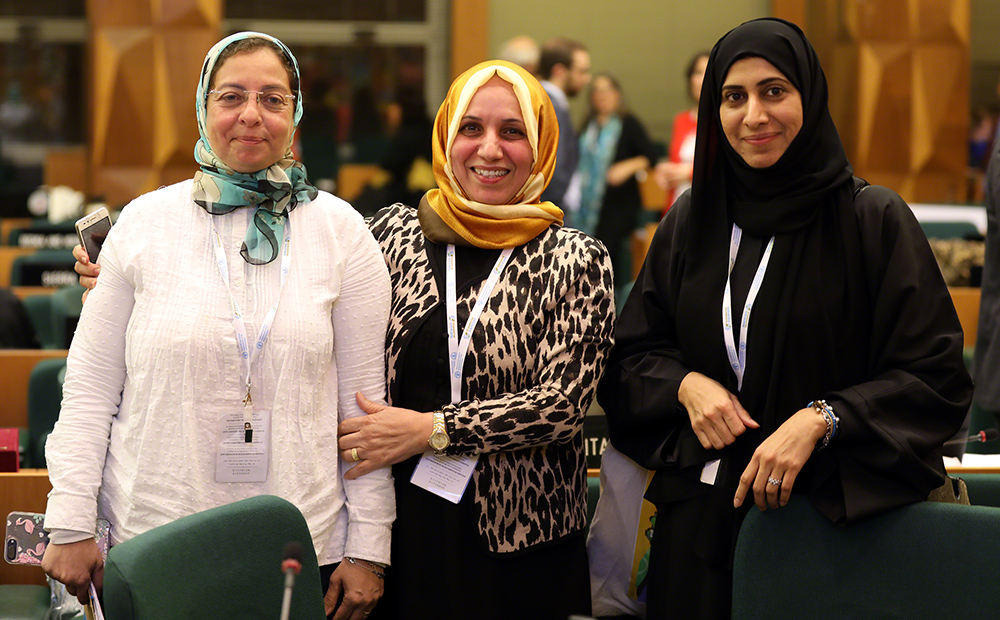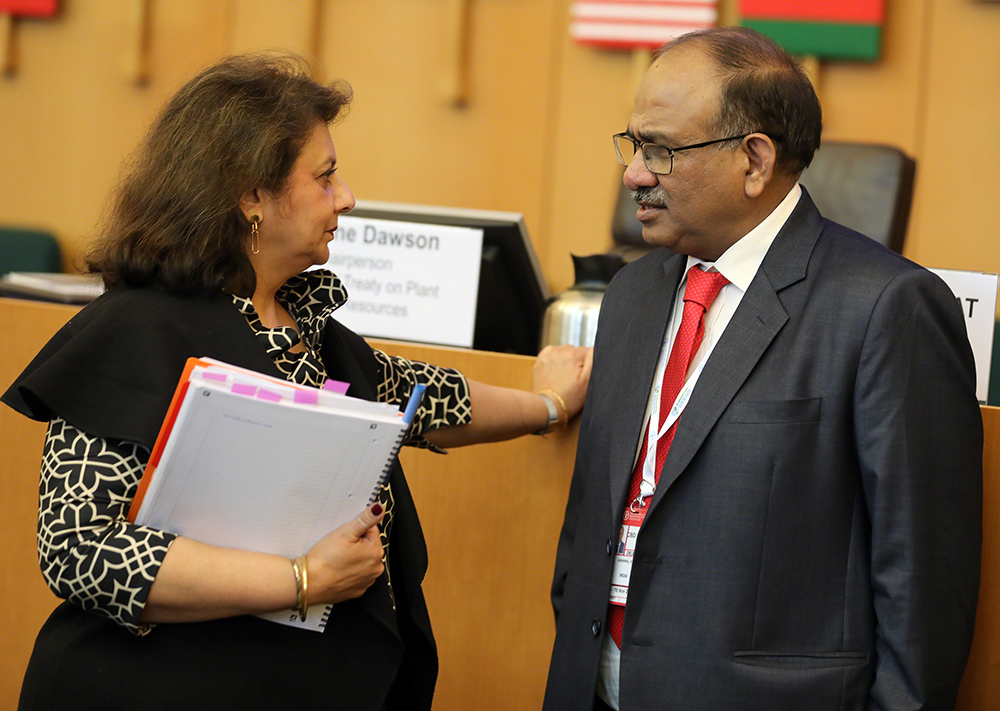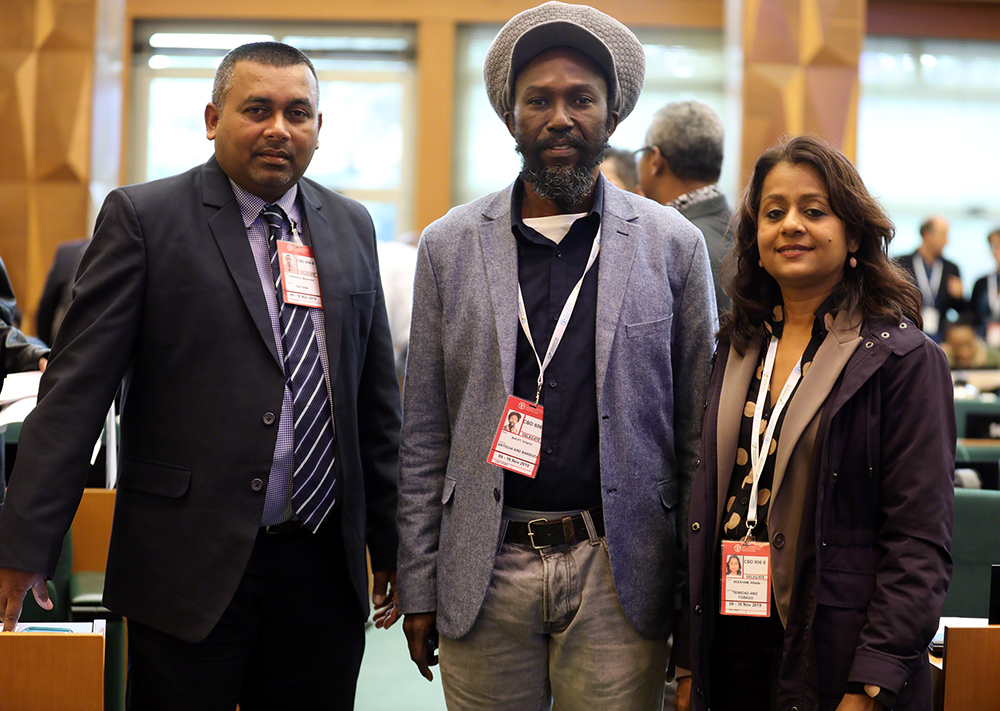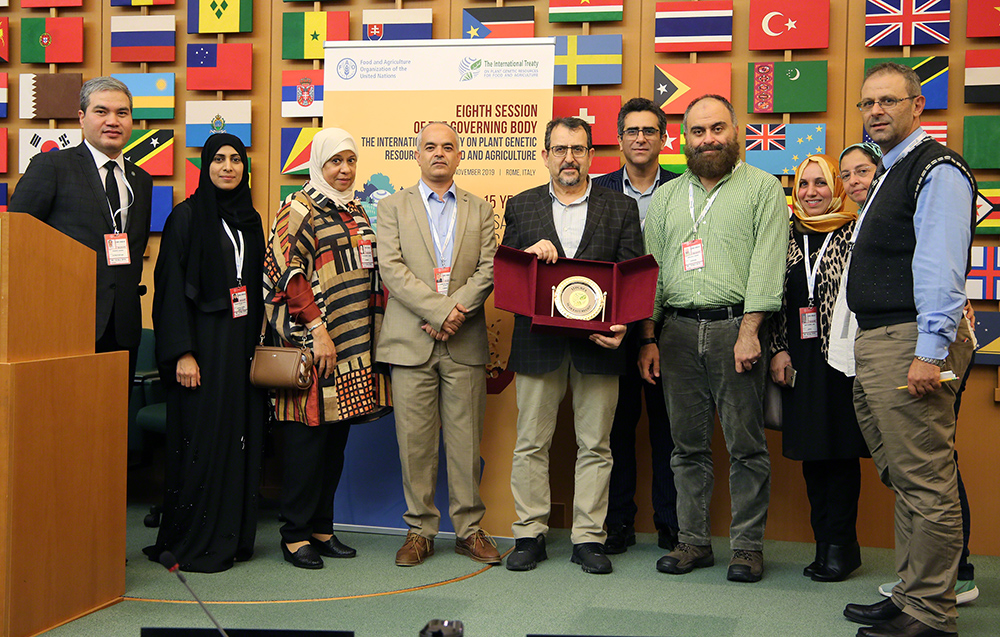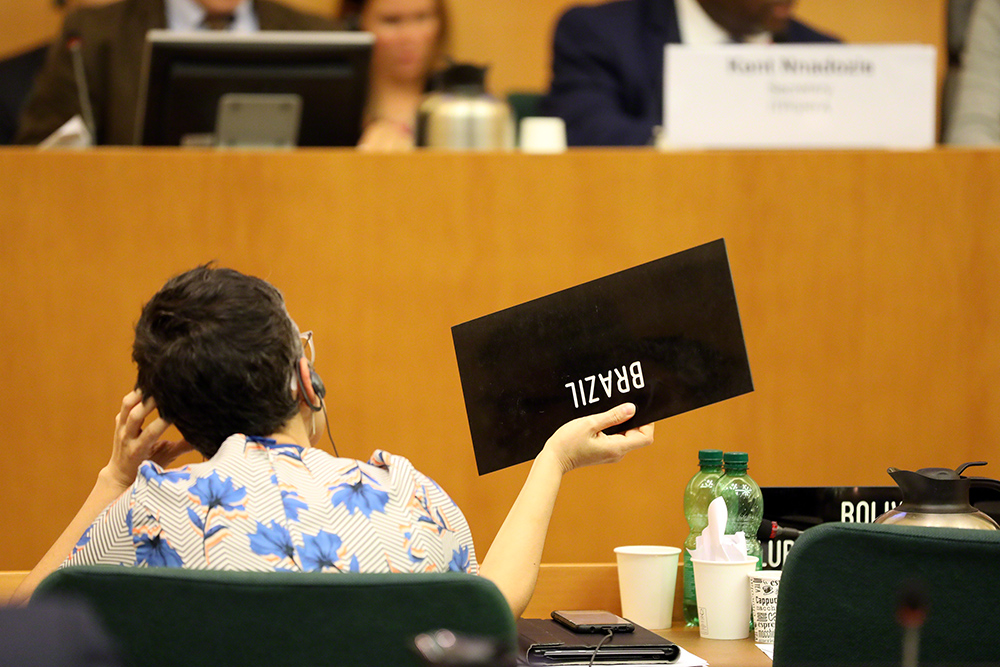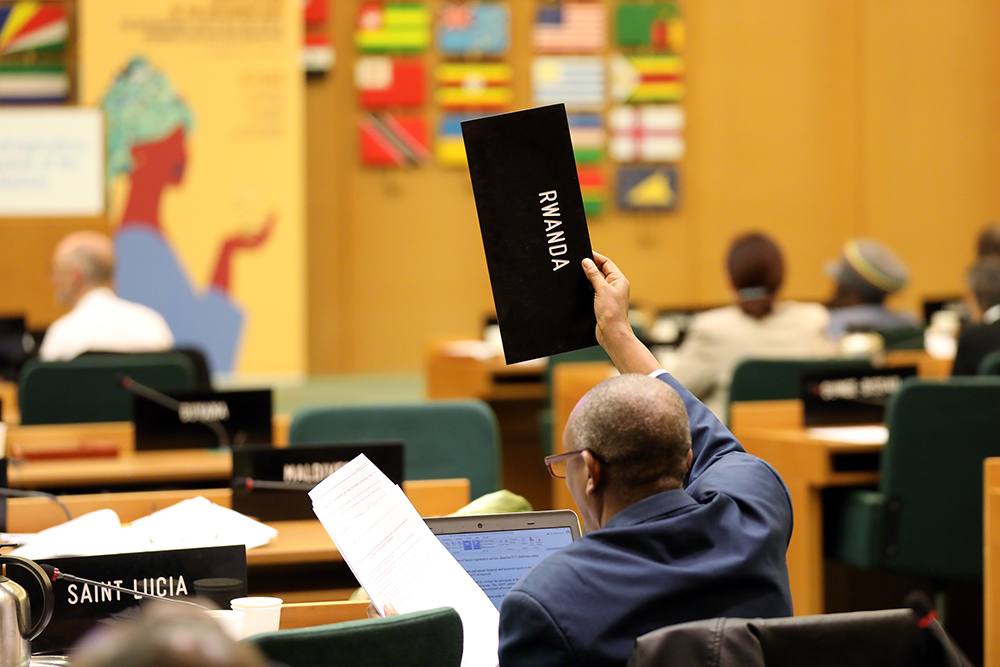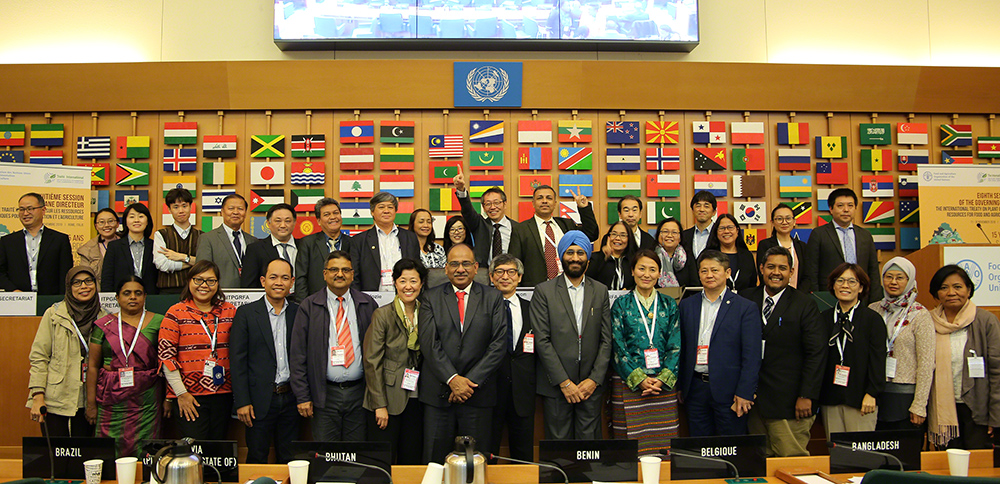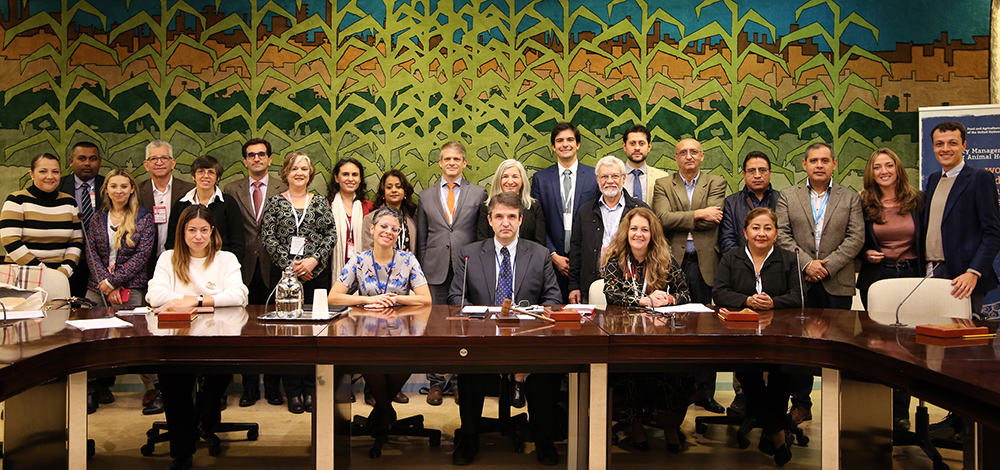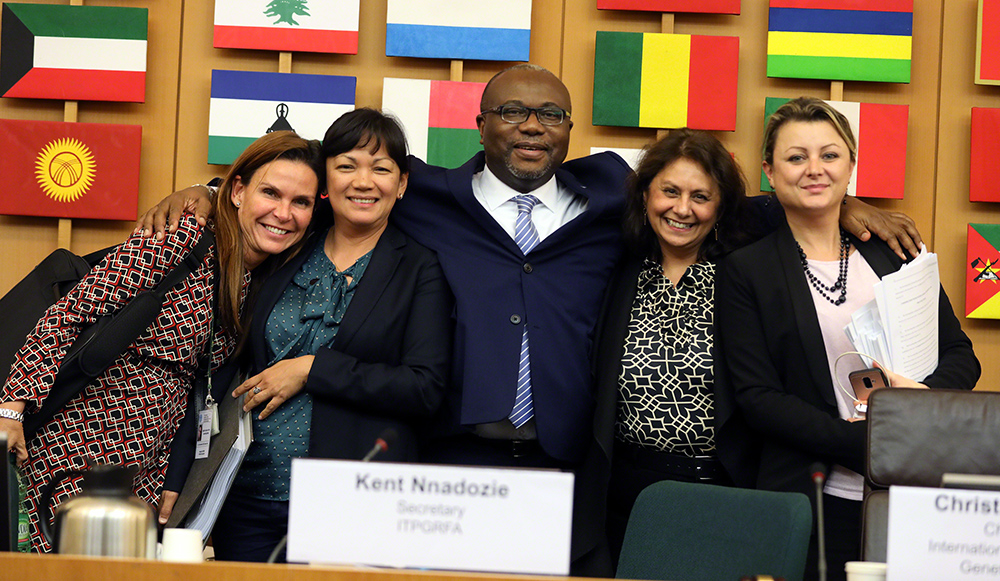Summary
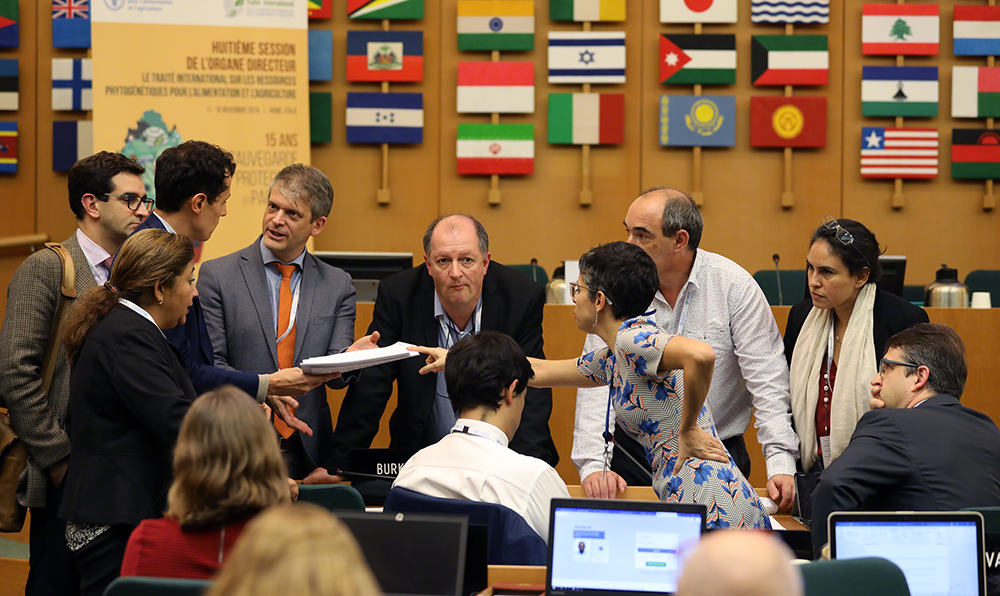
On Saturday morning, plenary reviewed draft resolutions, including on cooperation with other international organizations and the Funding Strategy. GB 8 Chair Christine Dawson (US) presented a compromise package on enhancing the Multilateral System (MLS) of access and benefit-sharing, including drafts on: a resolution; a revised Standard Material Transfer Agreement (SMTA); an amendment to expand Annex I of the Treaty; terms of reference for an Ad Hoc Advisory Technical Committee on the SMTA and the MLS; and a proposal on consideration of potential implications of the use of digital sequence information/genetic sequence data for the Treaty objectives under the Multi-Year Programme of Work. Delegates considered the proposal during lunchtime. In the afternoon, plenary accepted with appreciation India’s proposal to host the ninth meeting of the Governing Body (GB 9); elected new Compliance Committee members, new Bureau members, and Yasmina El Bahloul (Morocco) as GB 9 Chair; and expressed gratitude for retiring Javad Mozafari (Iran). Delegates then addressed the proposal for a package of measures to enhance the MLS.Developing countries rejected the proposal, noting it lacks balance with regard to fair and equitable benefit-sharing and it does not adequately address genetic sequence data. They also noted it was tabled too late in the meeting, drawing attention to limited time left to review it. Many supported continuing work within the Working Group on enhancing the MLS. Cameroon warned that the future of the Treaty is at stake, and asked to explore all options for a process forward. Brazil, supported by many, said the proposal cannot constitute the basis for further negotiations, stressing that:
- the expansion plan included a trigger mechanism solely related to the amendment of Annex I, with no trigger related to the Benefit-sharing Fund (BSF), while the relevant BSF target was not even discussed; and
- a number of creative solutions, including a growing rate for the subscription system proposed during the closed group proceedings, were not considered because they were opposed by one country only.
Argentina called on countries interested in multilateralism to continue discussions. India, with others, noted that a solution will be unattainable unless the implications of genetic resource digitalization on the objectives of the Treaty are addressed.Australia, Canada, Finland, the US, and Japan called for a pause in deliberations on enhancing the MLS, with Australia suggesting focus on building mutual understanding on digital sequence information and its implications. Japan encouraged informal discussions between parties.GB 8 Chair Dawson noted plenary’s clear indication that the proposal is not accepted, further noting lack of consensus on continuing intersessional work on the issue. Plenary then reviewed the meeting’s report. A lengthy discussion ensued on the section of the report reflecting the lack of consensus on measures to enhance the MLS, lack of decision on an intersessional process, and future steps, if any, regarding informal consultations between parties and the possibility for GB 9 to address the issue. Delegates eventually agreed to: state that GB 8 could not reach consensus; note the need to take stock and assess next steps for further work; and note that the GB had different views on the way forward. Plenary then adopted the report and resolutions on remaining agenda items.Chair Dawson closed the session at 12:39 am.
IISD Reporting Services, through its Earth Negotiations Bulletin (ENB) meeting coverage, is providing daily web coverage and daily reports from the 8th Session of the Governing Body. In addition, IISD Reporting Services published a summary and analysis report from the meeting, which is now available in HTML and PDF.
Photos by IISD/ENB | Mike Muzurakis
For photo reprint permissions, please follow instructions at our Attribution Regulations for Meeting Photo Usage Page
